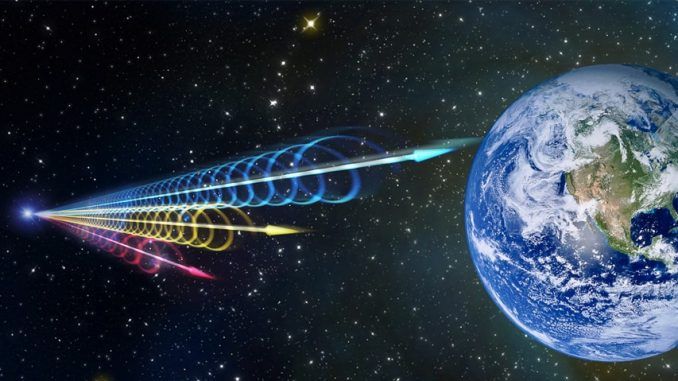
A mysterious burst of radio waves that have reached Earth has got scientists excited.
Powerful repeating signals have come from beyond the Milky Way galaxy. Researchers from McGill University in the US have detected fast radio bursts (FRBs) from deep space that were not part of an explosive event and came in repeated waves.
Silicon Republic reports:

BYPASS THE CENSORS
Sign up to get unfiltered news delivered straight to your inbox.
You can unsubscribe any time. By subscribing you agree to our Terms of Use
Until now, all discoveries of FRBs have been one-off events, with the most likely origin suggested by researchers being a major cataclysmic happening in space, like a star exploding into a supernova, or a neutron star collapsing into a black hole.
FRBs are so hot right now
In fact, FRBs were only recently used to confirm the cosmological model that there is indeed ‘missing matter’ out there in the universe that we simply can’t see.
The same major cataclysmic events presumed to be responsible for FRBs have created the recently-discovered gravitational waves that are being heralded as one of the most important scientific discoveries for decades.
However, in one region of space recently listened to, a series of FRBs are leaving researchers scratching their heads as, for the first time, there has been a detection of repeating short-duration bursts of radio waves from a mysterious source, likely located well beyond the edge of our Milky Way galaxy.
I’m not saying it’s aliens, but, aliens
Of course, while our first hopes for any mysterious source of radio signals is to wish it to be of intelligent origin – like the Wow! Signal – the initial findings suggest a more plausible scientific source.
According to the research team, the most likely origin of these bursts is a very exotic object, such as a rotating neutron star of ‘unprecedented power’ that enables the emission of extremely bright pulses.
The PhD researcher who found the oddity, Paul Scholz, recorded a total of 10 new bursts, with his colleagues gathering around the data quite excitedly, with Scholz saying of the experience: “I knew immediately that the discovery would be extremely important in the study of FRBs.”
Scholz and the team made the discovery using the Arecibo radio telescope in Puerto Rico, the largest radio telescope in the world and, most importantly for astronomy, the team’s findings published in Nature would contradict previous hypothesis that repeating FRBs were impossible due to the cataclysmic nature of their creation.


